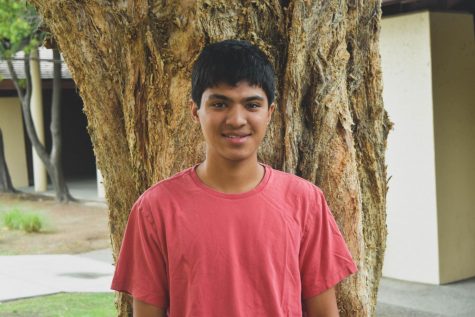Superintendent’s student advisory council in the works
May 8, 2019
The proposed council of student advisers to the Palo Alto Unified School District superintendent, a component of the district’s long-term policy platform, is in the process of entering its early implementation stages.
The details of the council — the application system, the exact number of students, whether it will be divided by high school, and more — still need fleshing out, Supt. Don Austin said in an interview. But he has already met with Palo Alto High School’s Associated Student Body to gather advice and had a meeting with Gunn High School students scheduled for today.
Austin said the concept of the council — which in PAUSD could include upwards of 50 students — is loosely based on a model adopted by some of his colleagues in Southern California.
“I want to replicate the purpose, but not necessarily the delivery,” Austin said, adding that his colleagues have called student opinions “very meaningful.”
The intention of the proposed council in PAUSD, according to Austin, is to create a direct student-to-superintendent channel, stripped of bureaucratic obstacles, to help inform the superintendent’s decision-making process.
Austin said the student advisory council is not meant to expose students to the more administrative issues like budget concerns and legal compliance, but rather to provide the superintendent’s office with awareness about student-centered problems, such as homework loads and mental health. He touted the skateboard racks, an initiative spearheaded by a Paly student, as a prime example of how student insight can better inform administrative decisions.
Students on this advisory council need not fit the outgoing ASB archetype, he noted; instead, he wants to form a group of students, both reserved and extroverted, with unique ideas.
“It [the council] could include ASB, but it’s not an ASB organization,” Austin said. “Every student could be a fit for this, as long as it’s a broad representation.”
Junior Pooja Akella, the ASB president-elect, said that ASB recognizes and agrees with Austin’s vision for “broad representation.” Among ASB’s recommendations, Akella said, are to promote diversity on the council by reaching out to student groups like LatinX and Black Scholars United, and to maximize the council’s inclusivity by streamlining the application process.
Though she said she’s “hesitant” to join the council — namely because she already has influence as an ASB officer and wants to ensure that others have an opportunity to voice their opinions — she, along with many other ASB officers, strongly supports the idea of an advisory council.
“I think this is yet another platform for students to be able to voice their opinions and for the site to be held accountable for getting things done,” Akella said.



Destiny • May 9, 2019 at 10:34 am
Just another chance for the District to co opt people and snuff out opposition to their student unfriendly policies? Put it on your resume for college anyone?